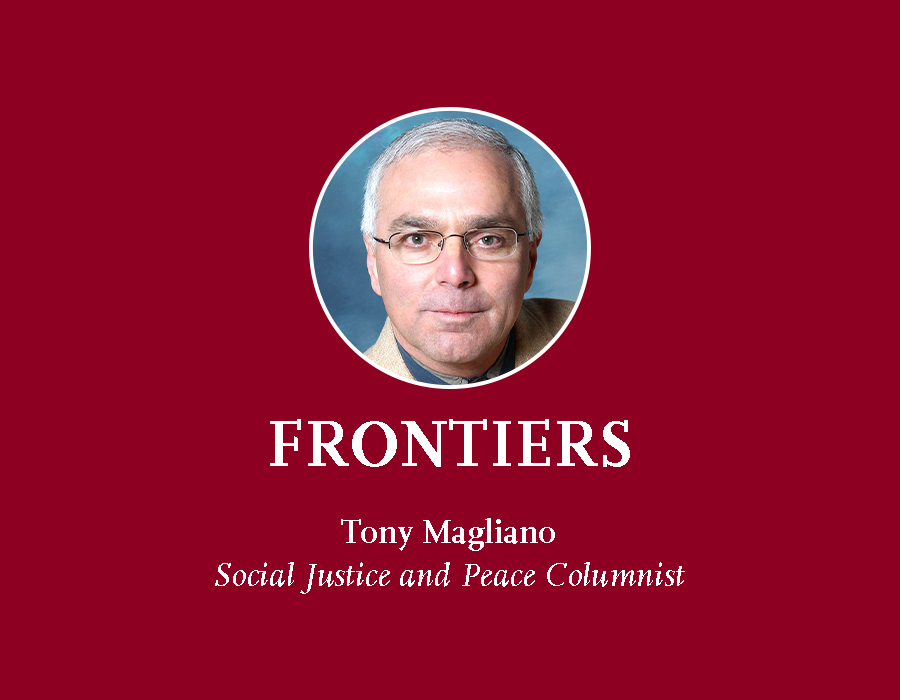Claire Ly, a philosophy teacher who grew up as a Buddhist, met the God of the West in Cambodian dictator Pol Pot’s “re-education” camps. She found Him after the Khmer Rouge regime killed her husband and brother during the madness that led to 2 million deaths between 1975 and 1979, in a country with a population of 8 million. The Cambodian exile was at the Vicenza Bible Festival in Italy, to talk about faith in dialogue and to be a bridge between cultures. Her presentation, titled “Fede in dialogo: io, ponte tra le culture” took place at the Vicenza’s Palazzo delle Opere Sociali building.
Ly’s painful past made her a bridge between cultures in the sense that, when she found Jesus, she didn’t snub her Buddhist roots but began an ongoing dialogue between the faiths. She discovered Christianity in France, where she has been living since 1980. At the Vicenza Bible Festival, Ly presented her latest book in French, “La Mangrove – À la croisée des cultures et des religions,” a story about the imaginary journey of two Cambodian women, Ravi and Somaya, who live in exile in France and return to their country after many years.
Ravi stayed a Buddhist and Somaya embraced Catholicism. The two women began a dialogue and let their shared tragic experience ask the questions. Here, the link with Claire Ly’s personal experience is obvious. The mangrove, a tree which grows in the border area between freshwater and saltwater, acts as a perfect metaphor in the book.
The author sums up her experience like this: “In the midst of absolute evil, the God of the West has become present for me. Closed in suffering, I could not make room for others. Until He made me aware that I was still a part of humanity.” “For two years I would spend my time insulting the God of the West because I connected Him to the Marxism that devastated my country: He was an ideology that was born in the West not in the Buddhist world. Then, when the Khmer Rouge regime’s “re-education” program ended, they decided I had finally changed from a middle class woman to a working class comrade and I said to the God of the West: “I am standing here in silence, waiting for You to applaud.” But it was right at that moment that I started to realize that silence was, in fact, inhabited by Someone.”
It was this discovery that led to her baptism in 1983. But Ly never let go of her Buddhist roots, an experience she does not see as merely accidental. “In my Christian life in France, I have come across many words and a lot of noise,” she says. “So my Buddhist soul told me: Go back to silence, because Jesus Christ is beyond our words.” About the image of the mangrove, she says: “I think it’s an image that also speaks to us of the meeting and the intersection of cultures in terms of hope. Like Jesus’ disciples, we are called to become bridges between cultures and traditions; Remembering that Jesus is always waiting for us in Galilee, the crossroads of nations.”
This so very touching story of the simultaneous discovery of incredible suffering and unexpected – even unwanted – faith, amidst the utter lunacy of a totalitarian regime that treats people like animals in its insane aim to eliminate an old order to create a new “breed,” brings to mind the precious flickers of grace that happened during the Nazi holocaust or during the tireless persecution of Christians in Japan. It’s particularly touching that Ms. Ly is a teacher of philosophy, since the aim of the leader of the Khmer Rouge was to eliminate or to “re-educate” all members of the learned, middle or urban classes, to build from scratch a “pure” agrarian society. It’s almost ironic that she lives in France, the country where Pol Pot, the genocide master, studied and filiated himself in the Communist Party. It’s rather remarkable that she was able to forgive the French, who, as colonizers, helped to develop the insane utopia, by teaching in the schools that Khmers were “Aryans among Asians,” which meant that, like Nazis among Jews and other “inferior” races, they were morally superior to Chinese or Vietnamese. “Miracles like this give us strength to maintain the arduous path of interreligious dialogue and keep working for peace, between the clash of cultures and the most bitter, fierce and inhuman sectarianisms. Thank you, Ms. Ly. (Ed. Note) www.vaticaninsider.lastampa.it









